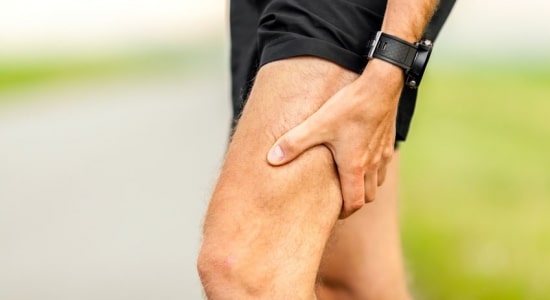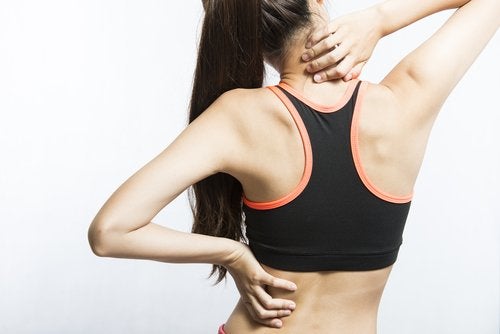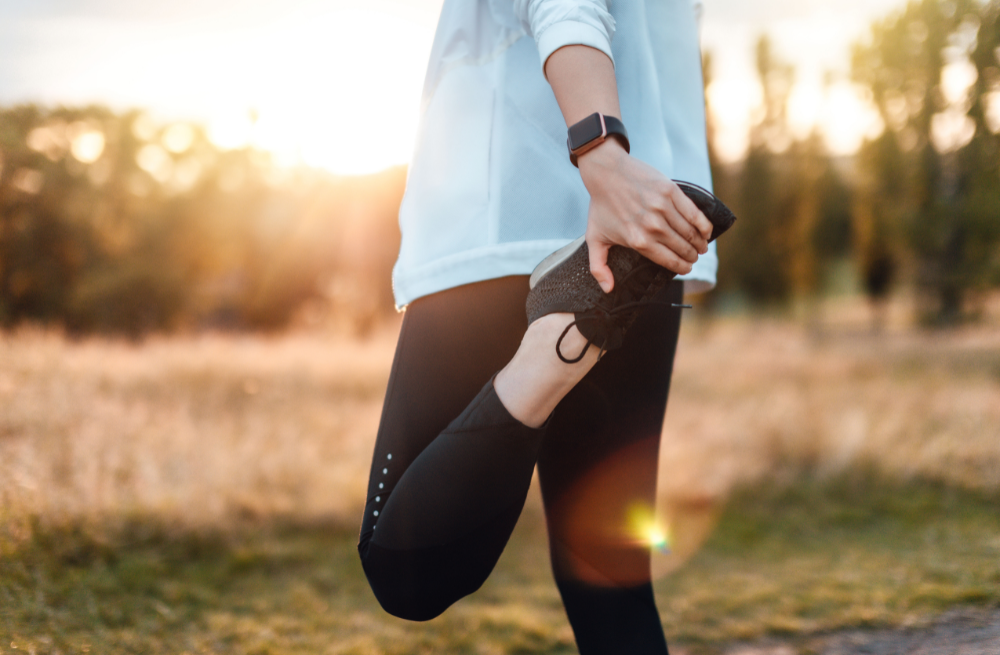
The cause of stiff muscles and what you can do about it
We all suffer from stiffness in our bodies from time to time. Because we have been exercising intensively, sitting for too long or simply because we are getting older by the day. Whatever the cause of stiff muscles may be; it feels unpleasant and it can hinder tremendously during daily activities. Moving around feels a bit annoying or even painful, while movement is so important to reduce muscle stiffness. You really don't need physiotherapy or massages right away to get rid of it, but what to do about stiff muscles? We tell you more about it in this blog!
Causes stiff muscles 
Stiffness occurs for many reasons. As you get older, the suppleness of your muscles can decrease, causing stiffness. But more factors come into play. Overexertion from intense or prolonged activities can lead to tired and therefore stiff muscles. This can also happen if you don't move enough, preventing your muscles from remaining flexible. Incorrect posture during daily activities can put unwanted tension on your muscles, resulting in stiffness.
Nutrition also plays a role: a one-sided diet can lead to a lack of essential nutrients your muscles need to stay supple. Stress and dehydration also have an impact that should not be underestimated. Stress can cause you to unconsciously tighten your muscles, while dehydration makes them work less efficiently.
Do stiff muscles come from old age?
Stiff muscles can indeed be a sign of ageing, but it is not inevitable that everyone who gets older will automatically suffer from stiff muscles. As you get older, your muscles undergo changes. They lose some of their natural elasticity, meaning they are no longer as flexible as when you were younger. This can lead to a feeling of stiffness.
But it is important to stress that age is not the only factor contributing to stiff muscles. Lifestyle choices, such as how much you exercise and the types of exercises you do, also play a crucial role. Regular light exercise can help keep muscles supple and healthy, even in old age. So it is possible to stay active even as an older person and work on maintaining or improving the suppleness of your muscles. Below you can read about some of the things you can do
What to do about stiff muscles 
If you experience a lot of stiffness, it can be incredibly annoying. It can be prohibitive, for example when performing daily activities. It can also be very frustrating to notice how muscle stiffness limits the suppleness of your body, reducing your quality of life and increasing tension in your body.
Fortunately, there are several effective ways to counteract it or reduce discomfort. For example, through exercises, rest and more exercise. What to do against stiff muscles? We give you some tips.
Give your muscles a rest
Taking rest is very important to reduce muscle stiffness. Especially if they are caused by overexertion (too much, too often, too long and/or too heavy exercise). It is very important because your muscle tissue has to recover after exercise, but also because it prevents aggravation. Resting can also reduce inflammation and replenish your energy reserves. It also helps improve the general health of your muscles.
Get moving
You can become stiff by moving too much, but also by moving too little. If you move too little, you notice this mainly in the morning. You will feel a bit stiff and notice that your muscles become more supple as the day progresses. You can prevent or reduce muscle tension by moving regularly. This improves blood circulation and keeps muscles supple. It is recommended to exercise at least half an hour a day. You really don't have to work out in the gym every day; a nice walk or taking your bike to work is a bonus.
Take a hot shower
Warmth is very good for your muscles. Whatever the cause of stiff muscles: take a hot shower or hot bath regularly! This is because heat stimulates the blood vessels, improving blood circulation. This in turn improves the supply of oxygen and nutrients to the muscles, promoting the recovery process. Heat makes muscles relax better, metabolism can speed up and heat can also provide pain relief.
And if you think that a warm bath, a hot shower or a nice hot jug only has physical benefits, you are so wrong. Because heat can also contribute to relaxation on a mental level! It can reduce stress, which in turn reduces muscle tension.
Stretching exercises
One of the most effective ways to relieve or prevent muscle tension is by stretching regularly. In other words, by doing stretching exercises. Stretch exercises help your muscles relax and increase flexibility. For example, try the calf stretch:
- Place your hands against a wall (or door).
- Step back with one leg and keep it stretched while bending the other leg forward.
- Keep your back leg straight and slowly bend your front knee (leaning forward) until you feel stretch in the calf of the back leg.
- Hold this position for 15-30 seconds and then do the same with the other leg.
Creams for stiff muscles
What to do about stiff muscles? We have answered this in this article and provided you with some useful and fine tips. There is another thing you can do to reduce muscle stiffness. Namely apply creams! Treat your stiff muscles with appropriate creams and gels. For example, check out Slimminglabs' products for muscles and joints.
